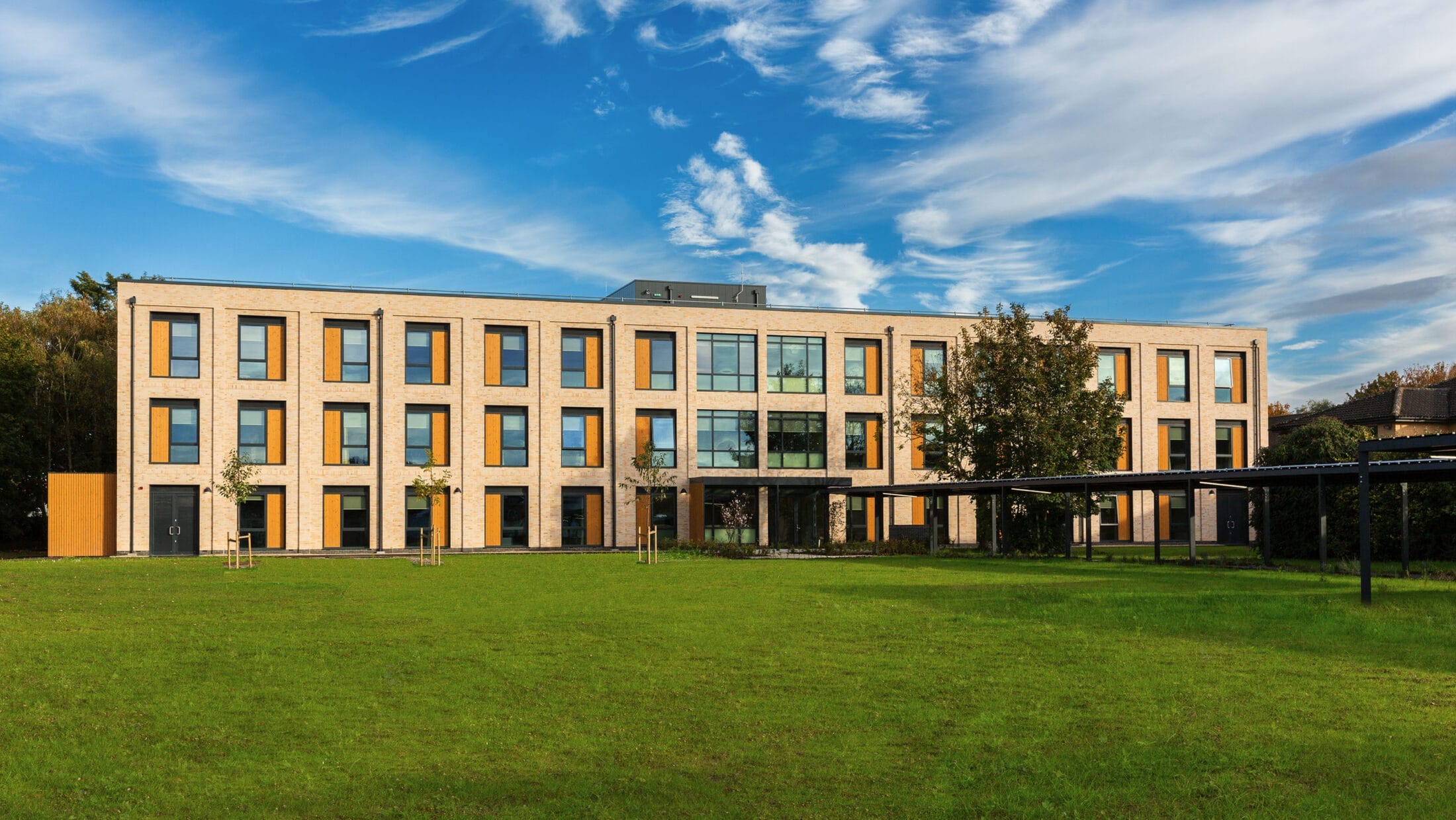
A major infrastructure project has been completed at Imjin Barracks in Gloucestershire to provide modern, sustainable accommodation for Army personnel based at the Headquarters of the Allied Rapid Reaction Corps (ARRC).
Imjin Barracks is the first site to benefit from a new wave of Net Zero Carbon construction, which is delivering major improvements to the design and delivery of the Army’s SLA.
The three-storey building, which includes a Counter-Terrorism Measures (CTM) level 2 compliant roof, was constructed via Modern Methods of Construction (MMC). Using 3D volumetric construction, units arrived on site up to 90% complete, allowing for significantly faster programme delivery, increased security measures thanks to fewer personnel needed on site, little disruption to an active military location and heightened quality assurance.
The new SLA comprises 69 single en-suite bedrooms, alongside communal living and dining facilities, kitchens, drying rooms and utility rooms. A fabric-first approach was taken to the building design, with U-Values aligned with Passivhaus standards, and includes photovoltaic panels, air source heat pumps and a mechanical ventilation system. The 3D volumetric design utilises mechanically fixed brick slips, factory fitted prior to the modules being delivered to site. These bring the benefit of robustness, maintain the context of the military estate, and minimise construction waste. Across the project, offsite construction made up 90% of the build.
Working closely with offsite construction specialist Reds10, HLM Architects, alongside the DIO, undertook a research exercise into a range of construction methodologies, with the conclusion that 3D volumetric construction provided the most benefits due to the range of repeatable elements. Considering the access and security constraints of a working military site, offsite construction also provided the greatest reduction in site workers, reduction in programme time, and increase in quality assurance.
“We are delighted and very proud to have been part of the development of the contemporary Single Living Accommodation for the Defence estate. The key design driver from our perspective is always to create accommodation that looks to improve the lived experience for our nation’s service personnel. This all-encompassing aspiration involved every aspect of the design – from the building’s placement and landscape setting, the welcoming and contemporary aesthetic, through to the vibrant and comforting interiors design and engaging arrangement of spaces.”
– Scott Frederick, Project Lead at HLM
Mike Green, Chief Executive, Defence Infrastructure Organisation, commented:
“The new accommodation being delivered by DIO and its partners at Imjin Barracks reflects DIO’s continuing commitment to providing the best possible accommodation for the Armed Forces.”
Major General Richard Clements CBE, Director of Army Basing and Infrastructure, said:
“It is excellent to see the result of significant investment in new modern accommodation for Imjin Barracks, as part of the enduring commitment across Defence to enhance living conditions for our people. I am delighted that this building is now ready for occupation. The facilities and interior have been completed to an impressive standard and the design will contribute to local efforts to reduce the Army’s carbon footprint.”
The 69 en-suite bedrooms have been equipped with full-size double beds and designed to maximise storage space provided for their occupants, while shared kitchens are fitted with state-of-the-art hobs and combination microwaves, bespoke fridges with individual coded compartments for cold food storage and lockers for dry food storage.
The Army SLA Programme is investing £1.4Bn and delivering 8,500 SLA bed spaces over 10 years to enhance living conditions for serving personnel. In addition to this, 8,000 SLA bed spaces are being delivered by the Defence Estate Optimisation (DEO) Army Programme, through new build SLA blocks and refurbishing works, bringing the combined total of SLA bed spaces being delivered over 10 years to 16,500.